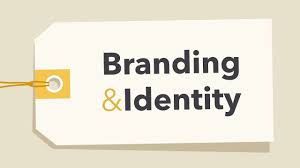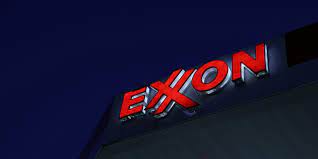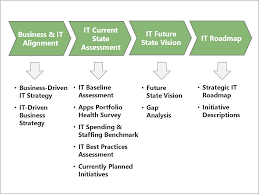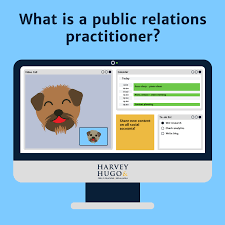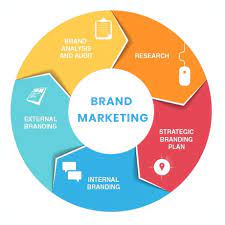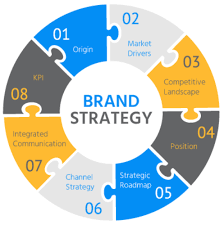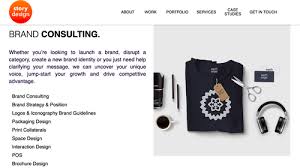Unlocking the Power of Thought Leadership: The Role of a Thought Leadership Consultant
In today’s competitive business landscape, establishing credibility and expertise is crucial for companies looking to stand out from the crowd. This is where thought leadership plays a significant role. Thought leadership allows businesses to position themselves as industry leaders, gain trust from their target audience, and drive meaningful conversations that shape their industry.
However, becoming a thought leader requires more than just sharing insights and ideas. It demands a strategic approach and an in-depth understanding of the market dynamics. This is where a thought leadership consultant can make a significant impact.
A thought leadership consultant is an experienced professional who guides individuals or organizations on their journey towards becoming recognized thought leaders in their respective fields. They possess the knowledge, skills, and expertise to help clients develop and execute effective thought leadership strategies.
One of the primary roles of a thought leadership consultant is to identify unique perspectives and areas of expertise within an organization or individual. They work closely with clients to understand their goals, values, and target audience. By leveraging this information, they assist in crafting compelling narratives that resonate with key stakeholders.
A thought leadership consultant also plays a crucial role in content development. They help clients create high-quality content that showcases their expertise while addressing industry challenges or providing valuable insights. This may involve writing articles, blog posts, whitepapers, or even delivering speeches at conferences.
Furthermore, a thought leadership consultant understands the importance of building strong networks within the industry. They help clients establish connections with key influencers, journalists, and other thought leaders who can amplify their message and enhance their reputation.
In addition to content creation and networking, a thought leadership consultant assists in developing distribution strategies to ensure maximum visibility for the client’s ideas. This may involve leveraging social media platforms, guest blogging opportunities on reputable websites, or securing media coverage through press releases or interviews.
Another valuable aspect of working with a thought leadership consultant is their ability to provide ongoing guidance and support. They monitor industry trends, identify emerging topics, and help clients stay ahead of the curve. This ensures that their thought leadership initiatives remain relevant and impactful.
Ultimately, a thought leadership consultant acts as a trusted advisor and partner throughout the entire process. They provide objective insights, challenge conventional thinking, and help clients refine their messaging to align with their target audience’s needs.
In conclusion, thought leadership has become an essential element in building a strong brand presence and establishing credibility in today’s competitive business landscape. A thought leadership consultant brings invaluable expertise to the table, guiding individuals or organizations towards becoming recognized industry leaders. By leveraging their strategic insights and experience, they empower clients to unlock the power of thought leadership and make a lasting impact on their industry.
Understanding the Role: A Comprehensive Guide to Thought Leadership Consulting
Staying Ahead: Keeping Abreast of the Latest Trends in Thought Leadership Consulting
3. Building Relationships
- Develop a clear understanding of the role and responsibilities of a thought leadership consultant.
- Research and stay up to date on the latest trends in thought leadership consulting.
- Develop strong relationships with clients, stakeholders, and influencers in the industry.
- Prioritise client needs above all else, ensuring that their objectives are met and exceeded at all times.
- Utilise creative problem-solving techniques to identify solutions for clients’ challenges in the area of thought leadership consulting.
- Leverage technology to create innovative strategies for improving organisational performance through thought leadership initiatives and programmes .
- Demonstrate excellent communication skills when engaging with clients, stakeholders, and other professionals in the field of thought leadership consulting .
- Maintain a high level of professionalism at all times while representing your organisation as a thought leader consultant .
Develop a clear understanding of the role and responsibilities of a thought leadership consultant.
Developing a Clear Understanding of the Role and Responsibilities of a Thought Leadership Consultant
In the realm of thought leadership, having a clear understanding of the role and responsibilities of a thought leadership consultant is crucial. These professionals play a vital role in guiding individuals and organizations on their journey towards becoming recognized industry leaders.
First and foremost, a thought leadership consultant possesses deep knowledge and expertise in various industries. They have a keen understanding of market dynamics, emerging trends, and the challenges faced by businesses within specific sectors. This knowledge enables them to provide valuable insights and guidance to clients seeking to establish themselves as thought leaders.
One of the primary responsibilities of a thought leadership consultant is to help clients identify their unique perspectives and areas of expertise. By delving into their clients’ goals, values, and target audience, they can craft compelling narratives that resonate with key stakeholders. This involves understanding the client’s industry positioning and developing strategies that align with their objectives.
Content development is another key aspect of a thought leadership consultant’s role. They assist clients in creating high-quality content that showcases their expertise while addressing industry challenges or providing valuable insights. This can take various forms, such as articles, blog posts, whitepapers, or even speeches at conferences. The consultant ensures that the content is engaging, well-researched, and tailored to captivate the intended audience.
Furthermore, a thought leadership consultant understands the importance of building strong networks within the industry. They help clients establish connections with key influencers, journalists, and other thought leaders who can amplify their message and enhance their reputation. By fostering these relationships, consultants assist clients in expanding their reach and gaining access to new opportunities for collaboration or exposure.
Additionally, developing distribution strategies is an integral part of a thought leadership consultant’s responsibilities. They work with clients to determine how best to disseminate their ideas to maximize visibility. This may involve leveraging social media platforms effectively, securing guest blogging opportunities on reputable websites or publications within the industry, or even generating media coverage through press releases or interviews.
Lastly, a thought leadership consultant provides ongoing guidance and support. They stay abreast of industry trends, identify emerging topics, and help clients stay ahead of the curve. By continuously monitoring the landscape, they ensure that clients’ thought leadership initiatives remain relevant and impactful.
In conclusion, a thought leadership consultant plays a vital role in guiding individuals and organizations towards establishing themselves as recognized industry leaders. By developing a clear understanding of their responsibilities, clients can leverage the expertise of these professionals to craft compelling narratives, create high-quality content, build networks within their industry, develop effective distribution strategies, and stay ahead of emerging trends. With the guidance of a thought leadership consultant, clients can unlock the power of thought leadership and make a lasting impact in their respective fields.
Research and stay up to date on the latest trends in thought leadership consulting.
Staying Ahead: The Key to Success in Thought Leadership Consulting
In the fast-paced world of thought leadership consulting, research and staying up to date on the latest trends are essential for success. As a thought leadership consultant, it is crucial to continuously expand your knowledge and understanding of the industry to provide valuable insights and guidance to your clients.
Research forms the foundation of effective thought leadership consulting. By immersing yourself in industry reports, case studies, and academic research, you gain a deeper understanding of the evolving dynamics and best practices within the field. This knowledge equips you with valuable insights that can inform your strategies and recommendations.
Keeping up with the latest trends is equally important. Thought leadership is a dynamic discipline that constantly evolves as new ideas emerge and consumer preferences shift. By staying informed about emerging trends, you can help your clients stay ahead of their competitors and position themselves as forward-thinking leaders within their industry.
One way to stay up to date is by following reputable thought leaders, industry influencers, and relevant publications. Social media platforms such as LinkedIn or Twitter can be excellent sources for accessing timely information and engaging in conversations with other professionals in the field.
Attending conferences, webinars, or workshops focused on thought leadership can also provide valuable insights into emerging trends. These events often feature expert speakers who share their experiences and discuss cutting-edge strategies that are shaping the industry.
Additionally, subscribing to newsletters or joining professional associations related to thought leadership consulting allows you to receive curated content directly in your inbox or engage in discussions with like-minded professionals. These resources can keep you informed about new research findings, innovative methodologies, or changes in client expectations.
By investing time in research and staying up to date on the latest trends, you demonstrate your commitment to excellence as a thought leadership consultant. Your clients will appreciate your ability to provide them with fresh perspectives and innovative strategies that align with current market demands.
Remember that being knowledgeable about the latest trends is not just about impressing clients; it is about delivering real value. By incorporating the latest insights into your consulting approach, you can help your clients navigate the ever-changing thought leadership landscape more effectively, ultimately driving their success.
In conclusion, research and staying up to date on the latest trends in thought leadership consulting are vital for consultants who aspire to deliver exceptional results. By immersing yourself in industry research, following thought leaders, attending events, and engaging with professional communities, you position yourself as an informed and trusted advisor. Embrace the power of knowledge and keep evolving to provide your clients with the most relevant and impactful guidance in their pursuit of becoming thought leaders.
Develop strong relationships with clients, stakeholders, and influencers in the industry.
Building Strong Relationships: The Key to Thought Leadership Success
In the realm of thought leadership, establishing strong relationships is a critical factor that can propel individuals or organizations towards success. A thought leadership consultant understands the significance of nurturing connections with clients, stakeholders, and influencers within the industry.
Developing strong relationships with clients is the foundation of any successful thought leadership journey. By understanding their goals, challenges, and aspirations, a thought leadership consultant can tailor strategies that resonate with their specific needs. This deep understanding fosters trust and enables consultants to provide valuable insights and guidance.
Moreover, building relationships with stakeholders is equally important. These are individuals or groups who have a vested interest in the industry or subject matter at hand. Engaging with stakeholders allows thought leaders to gain diverse perspectives, validate their ideas, and establish credibility within their professional community.
Influencers play a pivotal role in shaping industry conversations and trends. Collaborating with influencers can significantly amplify a thought leader’s reach and impact. A thought leadership consultant helps identify key influencers relevant to a client’s field and facilitates connections that can lead to mutually beneficial partnerships.
Cultivating these relationships goes beyond mere networking; it involves active engagement and genuine interest in others’ opinions and expertise. By actively listening, participating in discussions, and offering support or insights when appropriate, thought leaders can build rapport and establish themselves as trusted resources within their industry.
Thought leadership consultants also guide clients on effective communication strategies to engage with their target audience through various channels such as social media platforms, industry events, or webinars. By leveraging these channels effectively, clients can share valuable content that resonates with their audience while strengthening relationships.
Consistency is key when it comes to relationship-building for thought leaders. Regularly engaging with clients, stakeholders, and influencers helps maintain relevance in an ever-evolving landscape. Thought leadership consultants provide ongoing support by monitoring trends, identifying emerging topics of interest, and suggesting opportunities for engagement.
In conclusion, developing strong relationships with clients, stakeholders, and influencers is a vital aspect of thought leadership success. A thought leadership consultant understands the importance of these connections and guides clients in building authentic relationships that foster trust, credibility, and influence. By investing in these relationships, thought leaders can amplify their impact, drive meaningful conversations, and establish themselves as true industry leaders.
Prioritise client needs above all else, ensuring that their objectives are met and exceeded at all times.
Prioritising Client Needs: The Key to Success for a Thought Leadership Consultant
In the world of thought leadership consulting, one tip stands out as paramount: prioritise client needs above all else. A skilled thought leadership consultant understands that their success is directly tied to the success of their clients. By consistently exceeding client expectations and ensuring their objectives are met, consultants can build strong relationships and achieve remarkable outcomes.
At the core of this approach is a deep commitment to understanding and aligning with the client’s goals. A thought leadership consultant takes the time to listen attentively, asking probing questions to gain a comprehensive understanding of what the client hopes to achieve. By doing so, they can develop tailored strategies that address specific challenges and opportunities.
Once armed with this knowledge, a thought leadership consultant works tirelessly to exceed client expectations. They go above and beyond to deliver exceptional results, constantly seeking innovative ways to surpass agreed-upon objectives. This may involve crafting compelling content that resonates with the target audience, securing high-profile speaking engagements, or forging strategic partnerships within the industry.
Moreover, a thought leadership consultant understands that effective communication is key in meeting client needs. They maintain open lines of communication throughout the entire process, providing regular updates on progress and seeking feedback from clients. This collaborative approach ensures that any adjustments or refinements can be made promptly to ensure maximum impact.
By prioritising client needs, a thought leadership consultant builds trust and credibility in their relationships. Clients feel confident knowing that their objectives are being taken seriously and that their success is at the forefront of every decision made. This level of dedication fosters long-term partnerships based on mutual respect and shared achievements.
In conclusion, prioritising client needs is an essential principle for any successful thought leadership consultant. By putting clients first and ensuring their objectives are met and exceeded at all times, consultants can forge strong relationships built on trust and deliver exceptional results. By embodying this approach, thought leadership consultants can make a lasting impact on their clients’ success and solidify their own reputation as trusted advisors in the field.
Utilise creative problem-solving techniques to identify solutions for clients’ challenges in the area of thought leadership consulting.
Harnessing Creative Problem-Solving: Empowering Thought Leadership Consultants to Drive Solutions
In the realm of thought leadership consulting, the ability to navigate complex challenges and provide innovative solutions is paramount. As thought leadership consultants, one of our key responsibilities is to help clients overcome obstacles and unlock their full potential as industry leaders. To achieve this, we must utilise creative problem-solving techniques that enable us to identify unique and effective solutions.
Creative problem-solving involves thinking outside the box, challenging conventional wisdom, and exploring unconventional approaches. It encourages us to question assumptions, embrace diverse perspectives, and consider alternative viewpoints. By adopting this mindset, we can uncover fresh insights that lead to breakthrough solutions for our clients’ thought leadership challenges.
When faced with a client’s specific obstacle in the area of thought leadership consulting, we begin by thoroughly understanding their goals, values, and target audience. This deep understanding allows us to identify the root causes of their challenges and develop a comprehensive view of the situation at hand.
Next, we employ various creative problem-solving techniques to generate innovative ideas. This may involve brainstorming sessions with our team or engaging in collaborative discussions with our clients. We encourage open dialogue that fosters an environment where all ideas are welcomed without judgment or criticism.
During this process, we explore different angles and perspectives that challenge traditional thinking. We consider emerging trends in the industry, study successful case studies from other sectors, or draw inspiration from unrelated fields altogether. By broadening our horizons beyond the immediate context, we can uncover novel approaches that may hold the key to solving our clients’ challenges.
Once a range of potential solutions has been generated, we evaluate each option based on its feasibility, alignment with client objectives, and potential impact on their thought leadership journey. We weigh the pros and cons of each idea objectively while keeping in mind our clients’ unique circumstances.
Finally, we collaborate closely with our clients to refine and implement the chosen solution. This involves developing a detailed action plan, setting measurable goals, and establishing clear milestones. Throughout the implementation process, we remain agile and adaptable, making adjustments as necessary to ensure optimal results.
By utilising creative problem-solving techniques, thought leadership consultants can offer clients a fresh perspective on their challenges. We empower them to break free from the constraints of traditional thinking and explore new avenues for growth and success. Our ability to think creatively enables us to identify innovative solutions that propel our clients towards becoming influential thought leaders in their respective industries.
In conclusion, creative problem-solving is an essential tool in the arsenal of thought leadership consultants. By embracing this approach, we can unlock new possibilities for our clients and help them overcome obstacles in their journey towards thought leadership excellence. By thinking outside the box, challenging assumptions, and exploring unconventional ideas, we can provide tailored solutions that drive meaningful impact and propel our clients towards success.
In today’s fast-paced digital world, leveraging technology has become essential for businesses to stay ahead of the curve. When it comes to thought leadership initiatives and programmes, technology can be a powerful tool in driving innovation and improving organizational performance.
A thought leadership consultant understands the importance of harnessing technology to create innovative strategies that propel businesses towards success. By integrating technology into thought leadership initiatives, organizations can enhance their reach, engagement, and overall impact on their target audience.
One way technology can be leveraged is through data analytics. Thought leadership consultants can use advanced analytics tools to gain valuable insights into audience preferences, trends, and behaviours. This data-driven approach allows them to identify key areas of interest and tailor thought leadership content accordingly. By understanding what resonates with their target audience, organizations can create more impactful and relevant content that drives engagement and establishes them as industry leaders.
Furthermore, technology enables thought leaders to disseminate their ideas through various digital channels. Social media platforms, blogs, podcasts, webinars – these are just a few examples of the digital avenues that can be utilized to amplify thought leadership content. A thought leadership consultant can help organizations navigate these platforms effectively, ensuring that their message reaches the right people at the right time.
Another innovative use of technology in thought leadership is the development of interactive content formats. Infographics, videos, interactive presentations – these engaging formats not only capture attention but also facilitate better understanding and retention of information. By embracing such technologies, organizations can deliver their insights in a more memorable and impactful way.
Moreover, technology offers opportunities for collaboration and knowledge sharing among industry peers. Online communities and forums provide platforms for thought leaders to connect with like-minded individuals or experts in related fields. Thought leadership consultants can guide organizations on how to leverage these platforms effectively for networking purposes and fostering meaningful discussions that drive innovation.
Lastly, leveraging technology allows for better measurement and evaluation of thought leadership initiatives’ impact on organizational performance. Analytics tools provide valuable metrics such as website traffic, social media engagement, and lead generation. By analyzing these metrics, organizations can assess the effectiveness of their thought leadership efforts and make data-informed decisions to optimize future strategies.
In conclusion, technology has revolutionized the way thought leadership initiatives and programmes are executed. By harnessing the power of technology, organizations can create innovative strategies that improve their overall performance. A thought leadership consultant understands how to leverage technology effectively, helping businesses reach wider audiences, engage with stakeholders, and drive meaningful conversations that lead to success in today’s digital age.
Demonstrate excellent communication skills when engaging with clients, stakeholders, and other professionals in the field of thought leadership consulting .
Mastering Communication: The Key to Success for Thought Leadership Consultants
In the realm of thought leadership consulting, one essential tip stands out above the rest: demonstrate excellent communication skills. Effective communication is not only crucial for conveying ideas and insights but also for building meaningful relationships with clients, stakeholders, and fellow professionals in the field.
As a thought leadership consultant, your ability to articulate complex concepts clearly and concisely is paramount. Your clients rely on you to distill their expertise into compelling narratives that resonate with their target audience. By showcasing your exceptional communication skills, you instill confidence in your clients and establish yourself as a trusted advisor.
When engaging with clients, active listening is a fundamental aspect of effective communication. Take the time to truly understand their goals, values, and unique perspectives. Ask thoughtful questions that delve deeper into their expertise and challenges. By actively listening, you not only gain valuable insights but also show your clients that you genuinely care about their success.
Furthermore, adaptability in communication style is key when working with diverse stakeholders. Tailor your approach to suit each client’s preferences and needs. Some may prefer regular face-to-face meetings or video conferences, while others may prefer concise email updates or phone calls. By adapting your communication style to match theirs, you foster stronger connections and ensure clear understanding.
In addition to client interactions, building relationships with other professionals in the field is crucial for thought leadership consultants. Engage in networking opportunities such as industry conferences or online forums where you can connect with like-minded individuals. Cultivate relationships based on mutual respect and knowledge sharing. Collaborating with peers allows you to stay informed about emerging trends and broaden your expertise.
Written communication is equally important for thought leadership consultants. Craft well-written articles, blog posts, or social media content that showcases your expertise while providing value to readers. Pay attention to grammar, spelling, and clarity of expression to ensure your message resonates effectively.
Lastly, remember that effective communication goes beyond words. Non-verbal cues, such as body language and tone of voice, play a significant role in conveying your message. Maintain a professional demeanor, exude confidence, and demonstrate empathy when engaging with clients and stakeholders. These non-verbal cues can enhance trust and establish a positive rapport.
In the world of thought leadership consulting, excellent communication skills are the foundation for success. By mastering the art of communication, you can effectively convey ideas, build strong relationships with clients and stakeholders, and establish yourself as a trusted advisor in the field. Embrace this tip wholeheartedly, and watch your impact as a thought leadership consultant soar to new heights.
Maintain a high level of professionalism at all times while representing your organisation as a thought leader consultant .
Maintaining Professionalism: The Key to Success as a Thought Leadership Consultant
As a thought leadership consultant, one of the most vital aspects of your role is representing your organization with professionalism. When you position yourself as a thought leader, you become the face and voice of your company, and how you conduct yourself has a direct impact on its reputation and credibility. Here are some reasons why maintaining a high level of professionalism is essential in this role.
Firstly, professionalism builds trust. When clients or industry peers see you consistently exhibiting professionalism in your interactions, they are more likely to view you as reliable, knowledgeable, and trustworthy. This trust forms the foundation for successful relationships and collaborations, allowing you to establish yourself as an authority in your field.
Secondly, professionalism enhances your credibility. As a thought leadership consultant, your clients rely on your expertise and guidance. By consistently demonstrating professionalism in all aspects of your work – from communication to delivering on commitments – you reinforce your credibility and strengthen the confidence others have in your abilities.
Furthermore, maintaining professionalism sets a positive example for others. As a thought leader consultant, you have the opportunity to influence not only your clients but also those who look up to you within your organization or industry. By upholding high standards of professionalism, you inspire others to strive for excellence and contribute to creating a culture of professionalism within the industry as a whole.
Professionalism also ensures that you handle challenging situations with grace and poise. In any professional setting, conflicts or disagreements may arise. However, by maintaining professionalism at all times – even during difficult conversations or when faced with criticism – you can navigate these situations effectively while preserving relationships and reputation.
Lastly, maintaining professionalism reflects positively on your organization as a whole. When representing yourself as a thought leadership consultant, every interaction is an opportunity to showcase not only your expertise but also the values and ethos of your organization. By consistently upholding professional standards, you contribute to building a positive perception of your company, reinforcing its brand image and attracting potential clients.
In conclusion, maintaining a high level of professionalism is crucial for thought leadership consultants. It builds trust, enhances credibility, sets a positive example, enables effective conflict resolution, and reflects positively on your organization. By embodying professionalism in all your interactions and representing your organization with integrity and excellence, you establish yourself as a trusted thought leader who can make a lasting impact in the industry.



